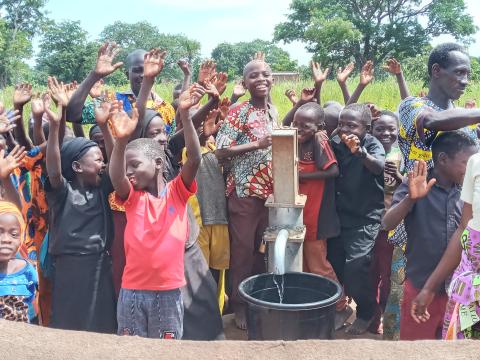Mbaidéné Patricia: "I don't leave the classroom to drink water at home".

It is past 9:00 a.m. at the Korkoin Community School in the commune of Bebalem in the province of Logone Occidental. As is customary, this is the time when Mbaidéné Patricia, a young girl of barely fifteen years old, usually quenches her thirst. Unlike previous years when she is forced to run home about 800 meters to drink water. Today, Patricia is happy to walk quietly to the human powered pump installed by World Vision in her school. She asks one of her friends who came out for the same occasion to help her by pumping water. After rinsing her hands with soap, with the hollow of her joined hands she recovers the water and drinks it and quickly goes back to the classroom. At the end of the class, she explains how the implementation of the human powered pump in her school has changed her life. "It's really a relief for me and for all the children in the school, our teachers and even the people around us," she says. Patricia added: "The drinking water that World Vision has given us is not only used to quench our thirst, but also allows us to attend classes and give our best to the school.
Indeed, the human power pump implemented in four schools in the province of Logone Occidental and in particular in Ngourkosso, Ba-Illi and Bebalem through the Integrated Nutrition project, is a response to the difficulties related to access to drinking water. For the Director of the school Mbaidéné Patricia atteds, Bekoutou Gilbert "The presence of drinking water in the school has increased the school attendance rate as well as the reduction of water-related diseases in our community. Even the children do not drop out of school and our students are clean at school. He testifies. According to him, thanks to the presence of this human-powered pump, "Many parents come to register their children in our school. We thank World Vision for this contribution in drinking water. God bless them and guide them in their missions towards the vulnerable. Concluded the Director.